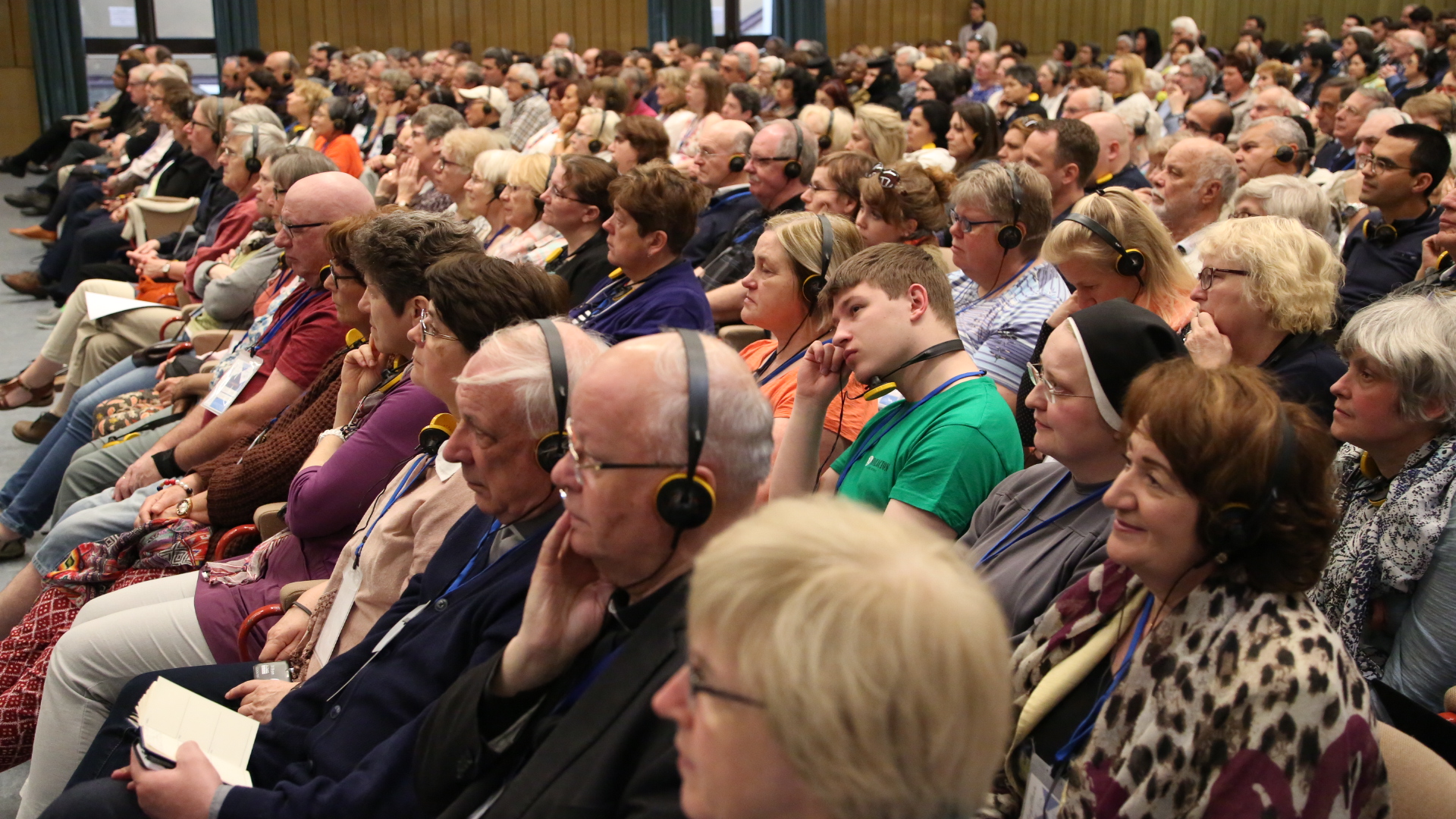
© CSC Audiovisivi – Caris Mendes
: with the 59
th edition of Ecumenical Week, promoted by the
Focolare Movement at Castel Gandolfo, Italy, (May 9-13), “it is [now] inserted in the crossroads of history, in the interweaving of memories, in the crossroads of ecumenism and part of the social commitment of the Church”
It was in 1962 that Chiara Lubich, after her first encounters with Christians from various Churches, invited them to get to know one another, offering the
spirituality of unity as a common basis for acknowledging one another as brothers and sisters in Christ.
Maria Voce highlighted it as she read the five “imperatives” that were formulated in the Catholic-Lutheran Document
From Conflict to Communion, which was elaborated for the 500
th Anniversary of the Reformation.
Maria Voce remarked: “They are imperatives which, in my opinion, do not only regard Lutherans and Catholics, but are able to be practiced by Christians from all the Churches… as an ecumenical undertaking that will be quite worthwhile.” This was also affirmed by Emeritus Bishop
Christian Krause, once President of the World Lutheran Federation
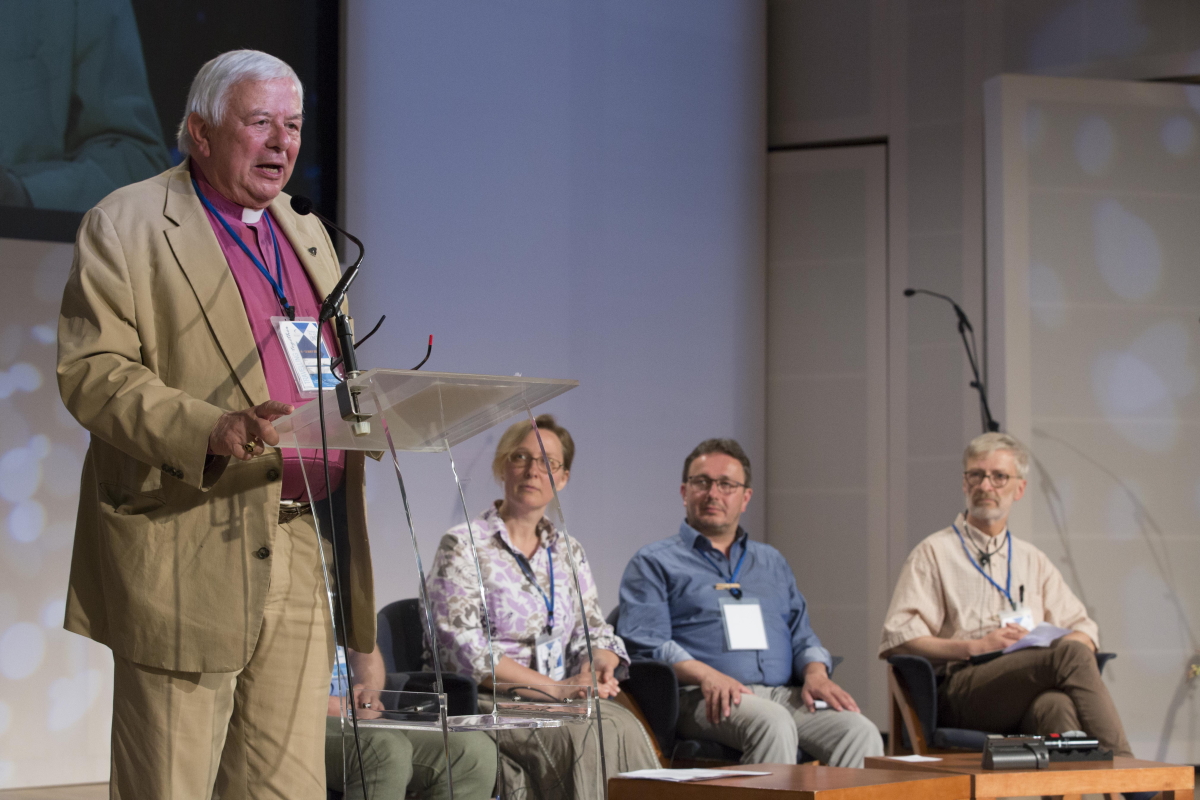
Emeritus Bishop Christian Krause,
that were sent, in one sent by the President of the Pontifical Council for the Unity of Christians,
Cardinal Kurt Koch, he remarks: “The experience of the ecumenism of life shows us that unity grows “walking together” and that walking together means that we are already living and achieving unity.”
The days were spent in an atmosphere of dialogue and mutual acceptance, prayer and sharing experiences of Gospel living from the perspective of unity and openness to the other, experiencing the beauty of Christ’s Church in which the followers of Christ practice what is the very heart of the Gospel: mutual love.
The prayer for unity in the Catacombs of Saint Sebastian in Rome, was much looked forward to, where a
Pact of Mutual Love (see Jn 13:34) was pronounced so that “this might be the witness taken back into our communities, our countries and societies.” For many people it evoked the Pentecost.
But all of this has a foundation: Jesus on the cross who cries out “Why?”
Jesus crucified and abandoned who took every division upon himself. When he is recognized and loved – in accordance with Chiara Lubich’s intuition and way of life – he is the key that unlocks unity with God and with our brothers and sisters. This was confirmed in the very touching testimonies from real life.
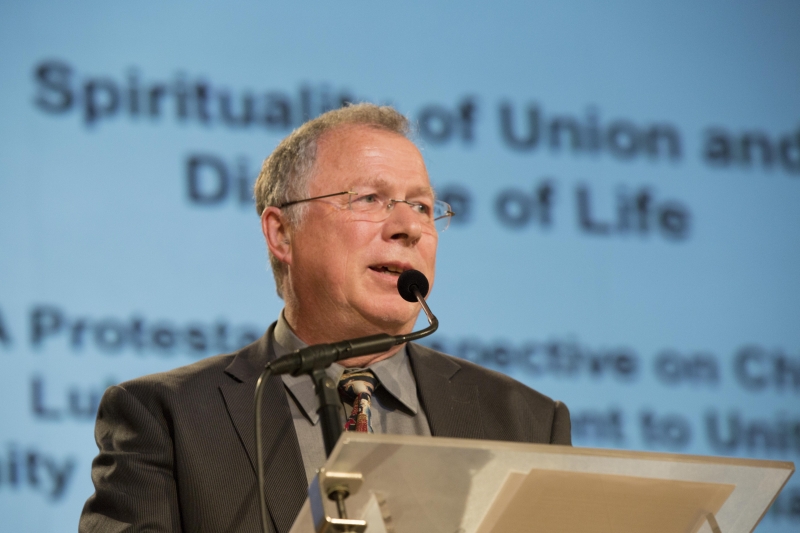
Rev Dr Martin Robra (WCC)
And it was reiterated in a video message by General Secretary
Rev Olaf Fykse Tveit from the World Council of the Churches (WCC). Among other things, he mentioned what had already been expressed in 1925: “The more we draw near to the cross, the more we’ll draw near among us Christians.
The interventions of several theologians from different Churches, including
Rev Dr Martin Robra (WCC)
: “If we keep Jesus forsaken among us as we walk together on our pilgrimage, we’ll learn together how to reconfigure the past that separates us and see with more clarity where God wants to lead us as disciples of Christ.”
Other interventions of a more theological nature along with experiences from real life, helped to deepen the link between unity and Jesus forsaken in the spirituality of unity, and share the fruits of this ecumenical lifestyle. The word “dialogue” was mentioned many times as a powerful means for ecumenical unity by Focolare co-president, Movement,
Jesús Morán, and by Romanian Orthodox
Dr Vasile Stanciu.
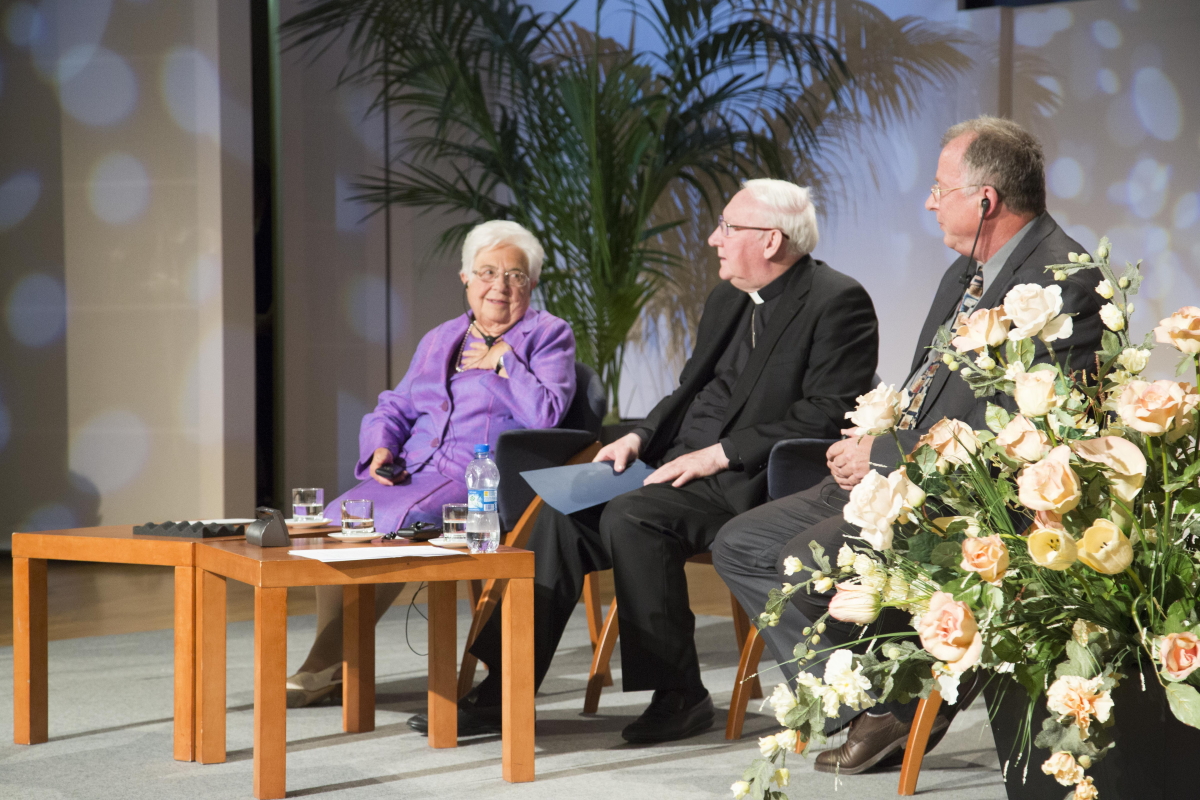
Maria Voce with Bishop Brian Farrel
from the Pontifical Council for the Promotion of Unity Among Christians, highlighted the contribution and the faithfulness of Chiara Lubich, as well as the actions of the Focolare Movement towards a Church of communion. There was also encouragement from
Pope Francis who, during the General Audience on May 10
th, publicly exhorted the participants in the Ecumenical Week “to pursue the common path of unity, dialogue and friendship among religions and peoples.”
In conclusion, Metropolitan
Gennadios Zervos from Italy and the Ecumenical Patriarchate of Malta, introduced the participants to the experience of communion between Patriarch Athenagoras and Chiara Lubich: “They opened the door of reconciliation between the Churches of the East and the West and no one can close it,” he declared.
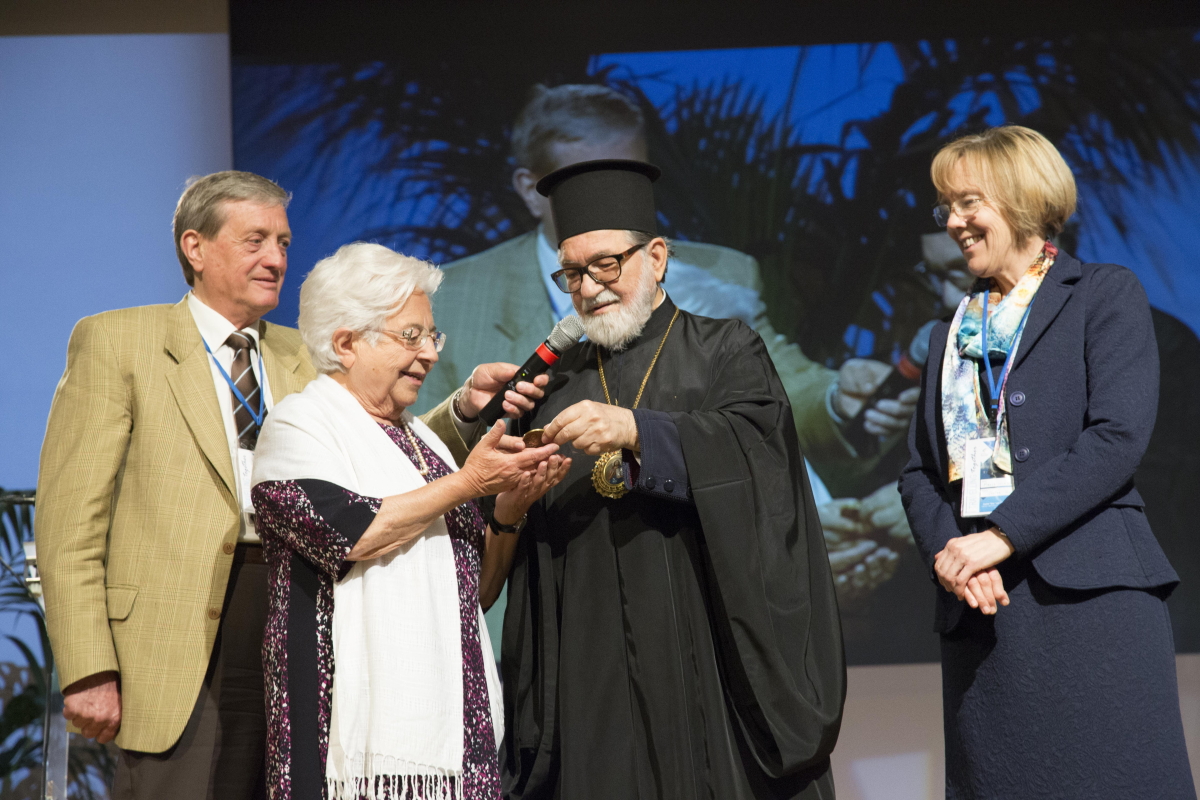
The Metropolitan Gennadios Zervos presented an “Historic Medal” to the president of the Focolare
In that context Gennadios presented an “Historic Medal” to the president of the Focolare as a sign of gratitude for what “the charism of unity and love of Chiara has done in history and is doing still now today for opening paths of reconciliation and dialogue among the Churches in in the world.” “We’ve constructed so much together. Now we need to pick up the pace, so that the communion will be visible and complete.” With these words
Maria Voce captured the vitality and commitment of a journey that continues.
See also: Interview Maria Voce (
Italian)
Message Dr Olav Fykse Tveit Message Cardinal Kurt Koch Message P. Bartolomeo


0 Comments